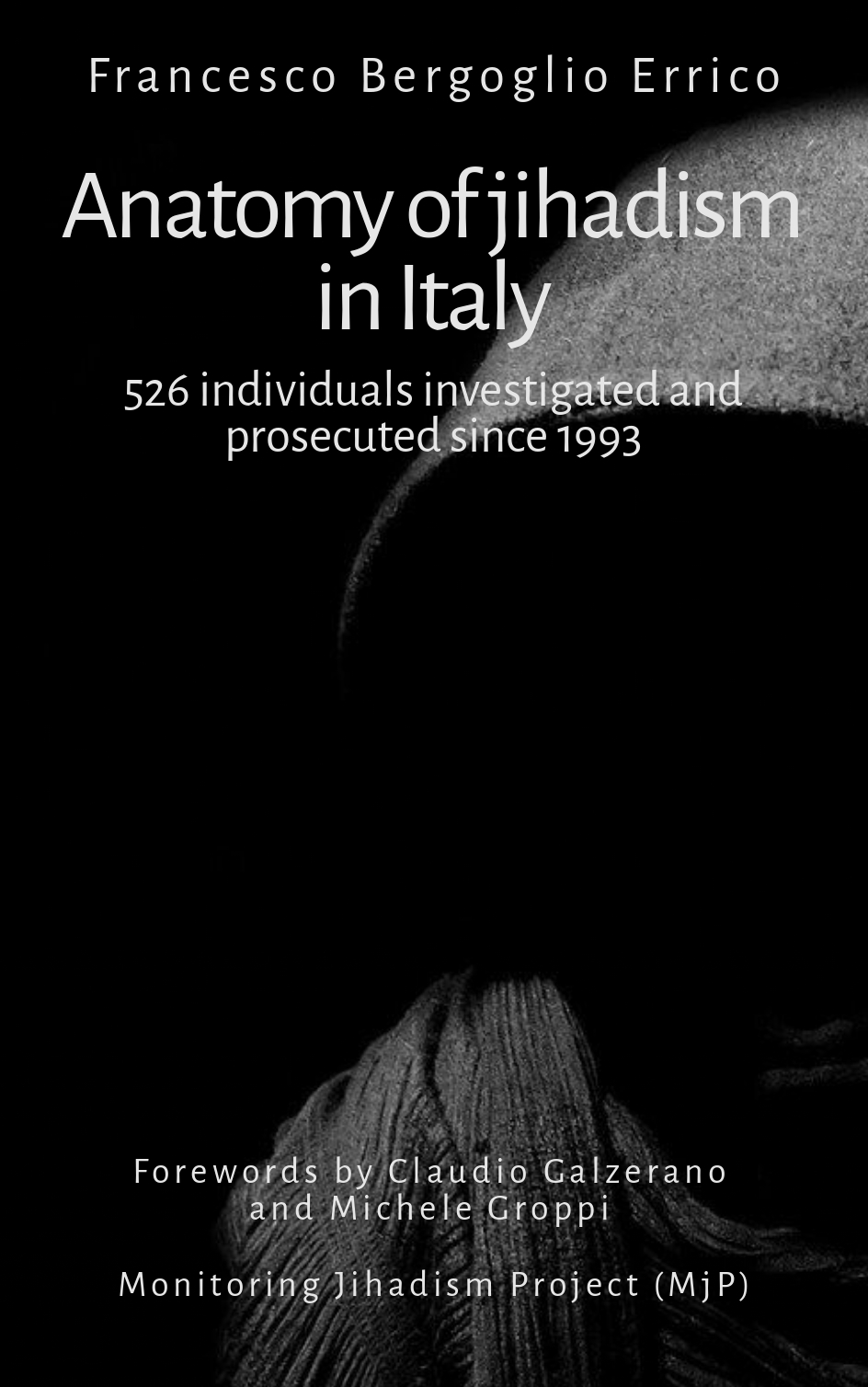Antar Hossameldin
Antar Hossameldin Moustafa Abdelhakim (henceforth just Antar Hossameldin) is an Egyptian citizen arrested in 2016 together with his brother Antar Hakim Mostafa Abdelhakim, Sakher Tarek and Hosny Mahmoud El Hawary Lekaa for terrorist association with the organisation known as ‘Islamic State’, or ‘Daesh’, which aims to commit acts of violence for the purposes of international terrorism. The investigation was conducted by the Anti-terrorism Section of the ROS of Carabinieri of Genoa and Milan as part of the so-called ‘Taqiya’ operation.
At the time of his arrest, Hossameldin was 43 years old, had been in Italy for 25, was working at a biogas plant on temporary unemployment, and resided with his wife and four children in a first-floor house in a renovated courtyard overlooking the river in Cassano d’Adda, 30 kilometers northeast of Milan. However, Hossameldin dreamed of the land of the Caliphate, namely Syria, Iraq and Libya conquered by al-Baghdadi’s ISIS. Hossameldin Antar’s secret was precisely Taqiya, dissimulation.
The police investigations led to the identification of an Egyptian group, organised on a family basis and stationed between Liguria and Lombardy, which was spreading jihadist material on the web and channeling soldiers from North Africa to Syrian territory (and also to Libya) on behalf of the self-styled ‘Islamic State’ (Daesh).
The propaganda and proselytising work was carried out exclusively on the Internet, not only through confidential channels but also, using pseudonyms and fictitious accounts, on the most popular social media. The material, which was disclosed to numerous contacts, was partly obtained directly from al-Hayat Media Center, the official propaganda organ of the self-proclaimed ‘Islamic State’. The monitoring services made it possible to document the confidential sharing of the oath of allegiance (bay’ah) to the caliph Abu Bakr al-Baghdadi.
The investigative findings leave no room for doubt that Antar Hossameldin made a useful contribution to the operation of the ‘Islamic State’ terrorist organization, a terrorist association of which the defendant himself, in dialogue with a certain Karim Jabli, described himself at the moment as ‘a fierce supporter’, but hopeful of one day joining the Islamic State fighters. The aid provided to the terrorist association consisted of conducting, via social media, a diuturnal propaganda activity (sometimes coupled with a call to glorify martyrs), facilitating subjects intending to join the Islamic State militias, and procuring co-defendant Sakher’s oath of allegiance to Caliph al-Baghdadi.
Specifically, as for the propaganda activity, it was found that the defendant created multiple Facebook profiles (with nicknames that did not correspond to his personal details), which were being used, even simultaneously, to spread the call to jihad, through the dissemination of material (videos and news) broadcast by the terrorist association on the Telegram platform through the ‘Amaq’ and ‘Nashir’ news agencies.
The wiretap also showed that the defendant was the point of reference to turn to for explanations regarding the conduct and choices of the Islamic State. Thus: on 30/3/2016 Antar, when asked by Karim Jabli if the execution of the Jordanian pilot Muad al-Kasasbeah (burnt alive inside a cage by Islamic State militiamen) is justifiable on the basis of the Koran or the Sunna, explains that ‘in case of punishment you reciprocate with the same punishment as mentioned in the Koran who mistreats you must mistreat him with the same measure with which he treated you’.
Not just a keyboard terrorist, but a recruiter able to help and support those who wanted to reach Daesh lands. In fact, on the basis of the content of the above-mentioned communications, Antar Hossameldin provided help to those who were intending to join the Islamic State militias; help that in the case in point took the form of the search for subjects (such as such Egyptian Straniero Istambul and such Zaki Kodra @ Amro Azb), who, having already fought for the Islamic State, were able to provide indications and accreditation (so-called tazkya). Example: the chat of 16/4/2016, in which Antar, talking to such a ‘Stranger in an extraordinary time’ states: ‘But I repeat, because of the importance of the matter, I do not organise or boast of knowing about the modalities of Nafir or something similar, but I will ask some brothers who have already done Nafir in the past hoping that they can help you’.
Finally, the investigative findings show that the defendant conveyed to Sakher Tarek the oath of allegiance to the Caliph al-Baghdadi, a circumstance admitted by Antar Hossameldin himself during his interrogation.
The precautions taken by Antar to avoid revealing sensitive data (such as his geographical location) and his propaganda and support activities for aspiring fighters are indicative of his awareness that he was contributing to the operation of the Islamic State terrorist association. First of all, the investigations carried out on the IP addresses of Facebook users revealed that Antar Hossameldin, through the anonymous communication system ‘TOR’, made it difficult to trace his Internet activity. Moreover, a 2016 chat between the defendant and another Facebook user shows that Antar suggested to his interlocutor, whose account had been blocked, to use a program to change his IP address.
There are also numerous conversations from which it is clear that the defendant, fearing to be intercepted, deletes posts or chats with compromising content, or suggests to his interlocutors to use communication channels considered safer.
In 2017, the court in Genoa sentenced Antar Hossameldin to six years’ imprisonment under Article 270 bis of the Penal Code, with deportation from the country to be applied at the end of his sentence. In 2018, the Court of Appeal of Genoa redetermined the crime under Article 414 (apologia and incitement to terrorism) of the Criminal Code, reducing the prison sentence to 3 years and 8 months. In 2019, the Supreme Court annulled the conviction, sending the decision back to the Court of Appeal of Milan, which in November 2019 confirmed the first sentence issued by the Court of Genoa. Thus, Antar Hossameldin was sentenced to six years’ imprisonment under 270 bis of the Criminal Code.



